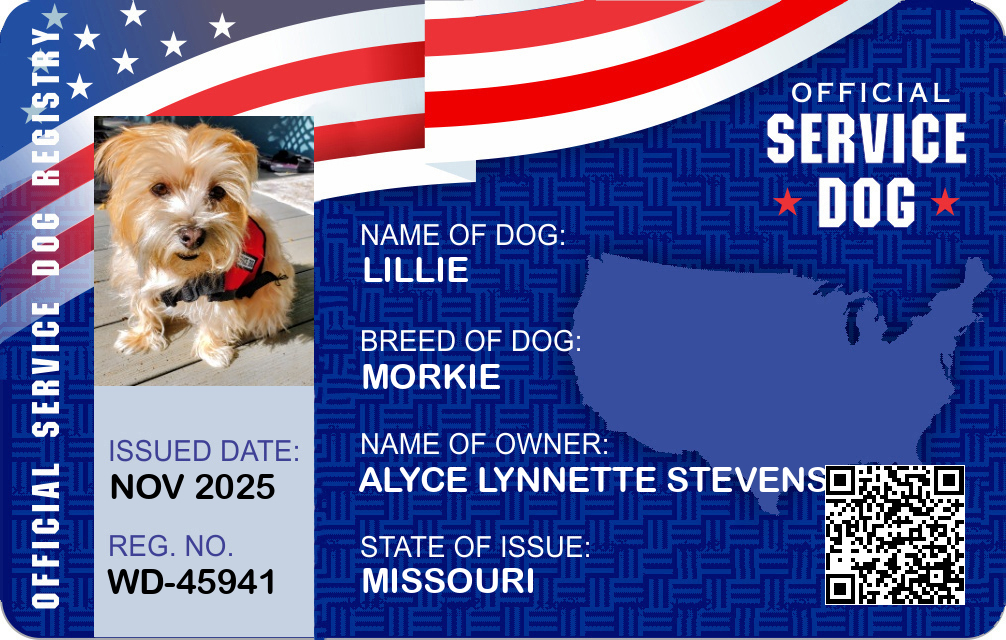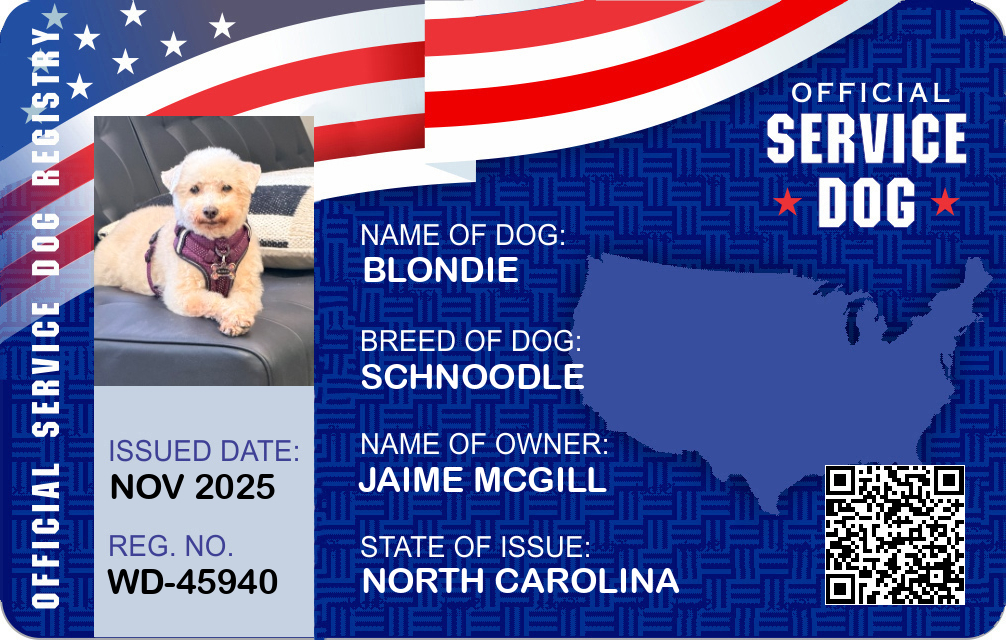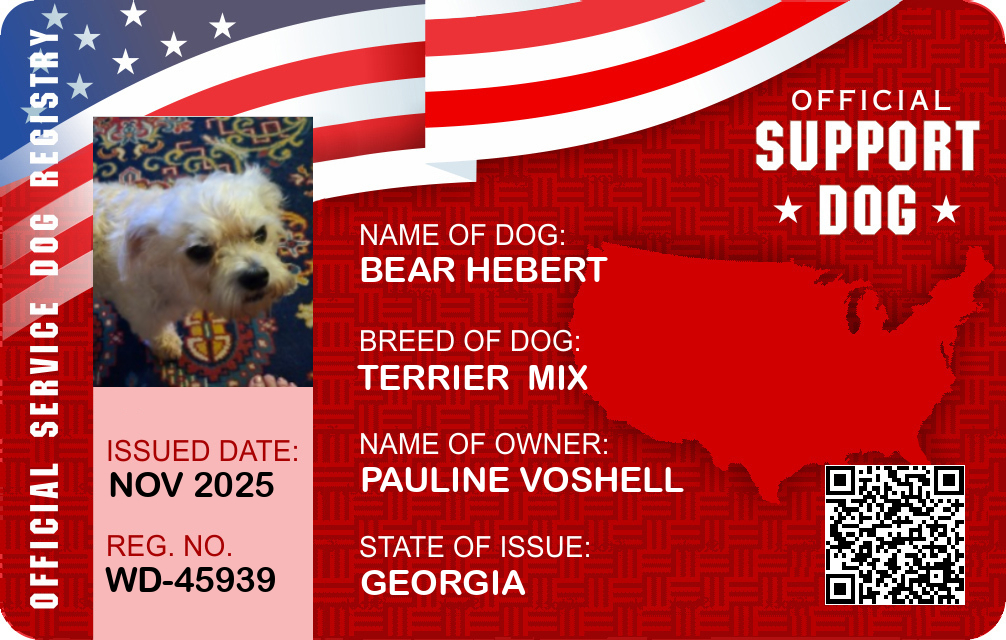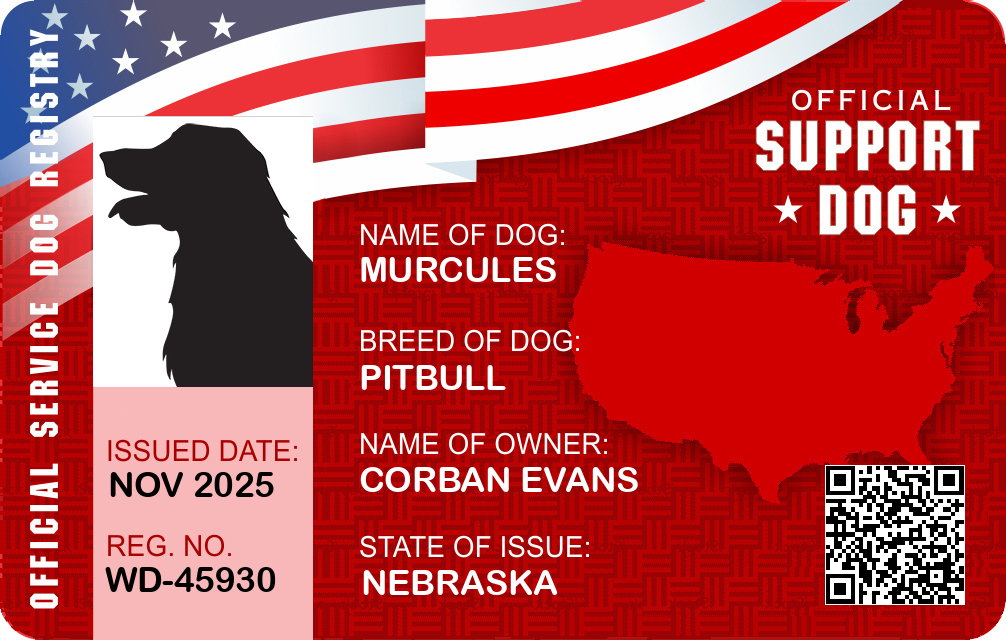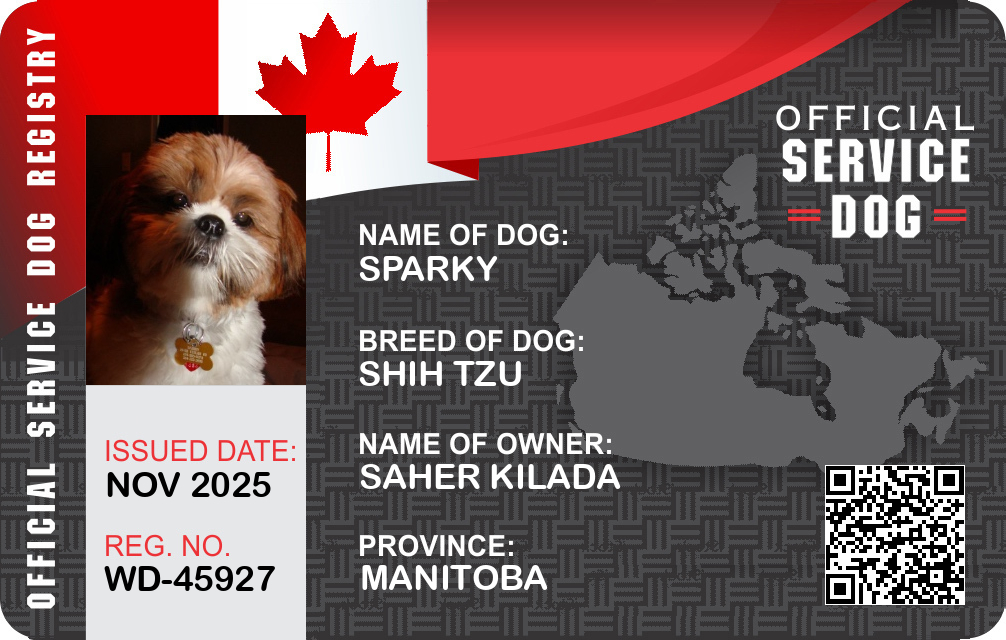Florida Service Dog Laws
Register Your Dog

Service dogs are vital partners for individuals with disabilities, providing assistance, independence, and companionship. Florida, like all states, aligns with federal laws while implementing specific state regulations to ensure the rights and responsibilities of service dog handlers are protected. This article explores the legal landscape of service dogs in Florida, examining definitions, federal and state laws, and practical guidance for handlers.
Overview of Service Dog and Legal Definitions in Florida
What is a Service Dog?
Under the Americans with Disabilities Act (ADA), a service dog is defined as a dog that is individually trained to perform tasks or do work for a person with a disability. These tasks must relate directly to the individual’s disability, which could include guiding individuals who are blind, alerting individuals who are deaf, pulling a wheelchair, assisting during seizures, or fetching dropped items. The primary function of the service dog is to assist their handler in overcoming specific challenges posed by their disabilities.
How Service Dogs Differ from Other Types of Assistance Animals
Service dogs are distinct from other types of assistance animals, such as emotional support animals (ESAs) or therapy animals. While service dogs are trained to perform specific tasks that aid in a person’s disability, ESAs provide comfort and support through companionship but do not require specific training to perform tasks related to a disability. Therapy animals are usually part of a therapeutic program and visit hospitals or nursing homes, offering comfort but not tailored to the individual needs of a particular person.
Key Federal Laws Affecting Service Dogs
#### Americans with Disabilities Act (ADA)
The ADA ensures that individuals with disabilities accompanied by service dogs have access to public accommodations, such as restaurants, hotels, and stores. It mandates that service dogs must be allowed to participate in these services alongside their handlers.
#### Fair Housing Act (FHA)
The FHA prohibits discrimination in housing-related matters and ensures that reasonable accommodations are made for individuals with disabilities, including allowing service dogs to reside in housing units that typically have a “no pets” policy.
#### Air Carrier Access Act (ACAA)
Enforced by the Department of Transportation, the ACAA requires airlines to permit service dogs to fly in the cabin with their handlers without additional fees, albeit with specific documentation and notification requirements.
State-Specific Service Dog Laws in Florida
Florida reiterates the federal laws regarding service dogs but also has state-specific regulations to protect both service dog handlers and the public. State law echoes the ADA’s definition of service dogs but includes the requirement for service dogs to be harnessed or leashed unless it interferes with their tasks.
Housing Rights and Responsibilities
Under both the ADA and FHA, individuals with service dogs in Florida are entitled to housing accommodations, regardless of “no pet” policies within the home. Landlords must make reasonable accommodations for service dog handlers, although they can request proof that the service dog is necessary due to a disability. However, they cannot demand extensive documentation related to the handler’s specific condition or necessarily ask for service dog certification.
Public Access and Accommodation
Service dogs in Florida are granted access to all public spaces, including restaurants, theaters, and stores, as dictated by the ADA. Businesses are not permitted to inquire about the nature of an individual’s disability but can ask if a dog is a service animal required because of a disability and what tasks it has been trained to perform. Businesses cannot charge fees for admitting service dogs but can require the handlers to be liable for any damages caused by the dog.
Transportation and Travel Rules
Florida complies with the ACAA, allowing service dogs to travel with their handlers in the cabins of airplanes. Airlines may require a notice period before travel and any additional documentation related to the dog’s health, training, and size if they perceive a possible impact on the flight’s operations.
Employment and Work
place ConsiderationsUnder the ADA, employers in Florida must make reasonable accommodations for employees with service dogs. Employers are allowed to request documentation that verifies the need for a service dog and outlines the type of assistance the service dog provides, provided these requests do not intrude into the employee’s privacy regarding their disability.
Documentation, Requirements, and Processes in Florida
Service Dog Documentation and Who Can Issue It
While service dogs do not require official certification in Florida, documentation verifying their necessity can be requested by housing providers and employers. This documentation can typically come from a doctor or a licensed mental health professional who understands the handler’s disability and the service dog’s role in offering support.
Landlord, Business, and Provider Verification Rules
Property owners and service providers in Florida can request proof of a service dog’s legitimacy but cannot require extensive medical records. They can inquire about the dog’s training and the tasks it performs but must keep the focus on the need and function rather than the handler’s personal health details.
Rights, Limitations, and Legal Risks
Rights Service Dog Handlers Have in Florida
Handlers enjoy a breadth of rights to access public accommodations, housing, and employment opportunities without discrimination. These rights are protected under multiple federal statutes reinforced by state laws, ensuring that service dog teams can function with dignity and autonomy.
Limits on Service Dog Protections and Common Restrictions
There are nuanced limitations: service dogs must not pose a direct threat to others’ health or safety and must be under control at all times. In rare cases where a service dog is disruptive or aggressive, a business or service provider can lawfully ask for its removal, provided they continue to offer service to the handler.
Penalties for Fraud or Misrepresentation
Florida law imposes significant penalties for misrepresenting pets as service dogs. Offenders may face fines, and repeat offenders could face higher penalties or community service requirements. This reflects the state’s commitment to preserving the integrity of service dog usage.
Practical Guidance for Service Dog Handlers in Florida
How to Qualify for a Service Dog Legitimately
To qualify for a service dog in Florida, individuals must have a legitimate disability and need for the specific tasks a service dog is trained to perform. The partnership typically begins with consultations with medical or mental health professionals who can confirm the necessity.
How to Talk to Landlords, Airlines, and Employers
Transparent communication is vital when discussing the presence of a service dog with landlords, airlines, or employers. Present documentation that confirms the necessity without divulging personal health information. Preemptive conversations can also alleviate complications when planning travel or work accommodations.
Summary of Service Dog Laws in Florida
Key Points:
- Definition: A service dog is tasked with assisting individuals with disabilities and is distinctly different from ESAs and therapy animals.
- Federal Laws: ADA, FHA, and ACAA secure the rights of handlers nationwide, including public access, housing accommodations, and air travel.
- Florida Laws: Emphasize rights while maintaining public safety through controlled environments for handlers and their service dogs.
- Rights and Limitations: Extensive public access rights with stipulations against disruptive or aggressive behavior.
- Documentation: Required in particular situations but should never infringe on privacy excessively.
- Legal Risks: Misrepresentation of service dogs leads to fines and is treated seriously under Florida law.
This comprehensive overview of service dog laws in Florida equips handlers with the knowledge necessary to navigate legal and social landscapes confidently, ensuring they remain compliant while advocating for their rights.



